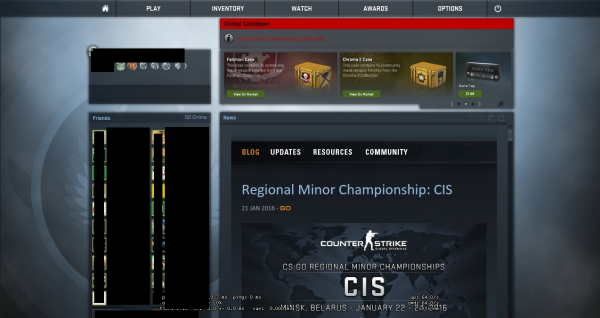Bridal Bliss Insights
Your go-to blog for all things weddings, trends, and bridal elegance.
Is a CSGO VAC Ban the Gaming Community's Version of a Scarlet Letter?
Explore the stigma of a CSGO VAC ban and how it mirrors the scarlet letter's mark of shame in the gaming world. Click to unravel the truth!
Understanding the Impact of a VAC Ban on a Gamer's Reputation
A VAC ban, or Valve Anti-Cheat ban, is a critical element that can significantly tarnish a gamer's reputation within the online gaming community. When a player receives a VAC ban, it signifies that they have been detected using cheats or other unfair advantages while playing. This action not only restricts the player from joining secure servers but also sends a strong message to other gamers about their integrity and commitment to fair play. As a result, many players view those with a VAC ban as unreliable, potentially leading to a decrease in social interactions and opportunities within the gaming world.
The repercussions of a VAC ban extend beyond just the loss of access to specific games; they can also impact a player's long-term reputation. Once a gamer is banned, rebuilding trust and credibility in the community can be an uphill battle. Many gamers will actively seek to avoid teaming up with someone who has a ban on their record, fearing that it may affect their own standing and reputation. To maintain a positive image, players should focus on adhering to community guidelines, engaging in fair play, and, if they have been banned, consider taking the necessary steps to demonstrate their commitment to a fair gaming environment.

Counter-Strike is a popular tactical first-person shooter that has captivated gamers for decades. Players can engage in intense matches across various cs2 maps, each designed to test their strategic skills and teamwork. The game's evolution has led to the release of several versions, with each iteration bringing new features and improvements to enhance the gameplay experience.
The Stigma of VAC Bans: How the Community Reacts
The stigma of VAC bans in the gaming community has been a contentious issue for years. Players often find themselves ostracized or labeled as cheaters when they receive a VAC ban, regardless of the circumstances surrounding it. This perception perpetuates a cycle of negativity, where banned players struggle to rehabilitate their online presence. Additionally, many within the community harbor a strong conviction that any form of cheating, even if unintentional or based on false accusations, should result in lifelong consequences. As a result, the community's reaction to VAC bans can often feel disproportionately harsh and unforgiving.
In contrast, a segment of the gaming community advocates for a more nuanced understanding of VAC bans. They argue that players deserve a chance to explain their situations and even reintegrate into the community after serving their bans. Community leaders and influential streamers often emphasize the importance of forgiveness, noting that many players are young and may not fully comprehend the implications of their actions. As discussions surrounding this issue continue, it becomes clear that while the stigma of VAC bans is deeply rooted, there is a growing movement towards fostering empathy and understanding among gamers.
Is a VAC Ban Permanent? Dispelling Myths and Misconceptions
In the world of online gaming, a VAC (Valve Anti-Cheat) ban is often viewed with dread by players. Many gamers believe that a VAC ban is permanent, effectively eliminating any chance of playing certain games on Steam. This misconception stems from the lack of clear communication regarding the nature of these bans. A VAC ban is applied when a player is detected using cheats or hacks, but it is crucial to understand that once imposed, a VAC ban cannot be lifted. Valve, the company behind Steam, has made it clear that their anti-cheat system is designed to maintain a fair gaming environment, and as such, reinstating banned accounts would undermine this objective.
Despite the finality of a VAC ban, it is important to dispel some myths surrounding the ban's implications. While a VAC ban prevents a player from joining secure servers for games where the ban is enforced, it does not remove the player's entire Steam account or their access to other non-secure games. For instance, players can still engage in single-player modes, play non-VAC secured games, or even create new accounts. However, players should be cautious as repeated offenses or attempts to evade a ban may lead to further sanctions. Ultimately, understanding these nuances can help gamers make better decisions and foster a more respectful gaming community.